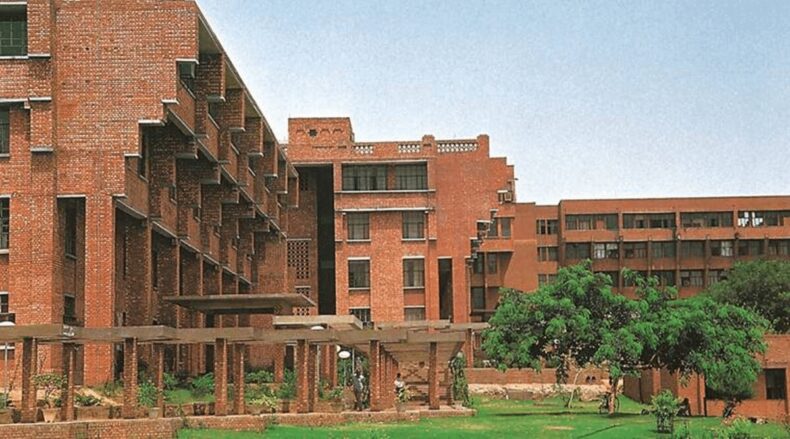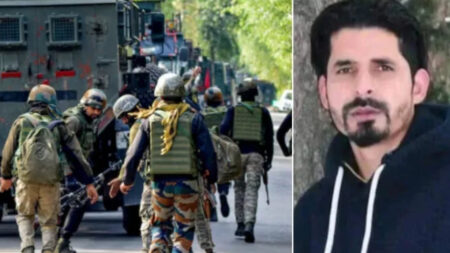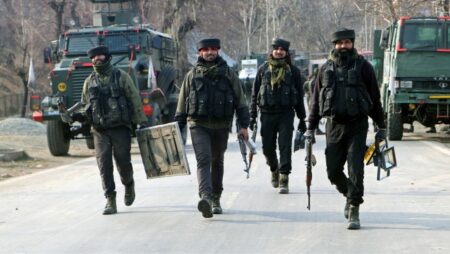The Jawaharlal Nehru University Campus (JNU) was plunged into darkness an hour before the controversial BBC documentary “India: The Modi Question” was to be screened on the campus.
The Jawaharlal Nehru University Students’ Union had planned to screen the first episode of the two-part BBC documentary, “India: The Modi Question.” Just an hour before the screening, at 8.30 p.m., the campus had a blackout. It was only after midnight that the power was restored after a group of students took to protesting.
According to the students, this was a deliberate blackout, and in order to show their protest, many students watched parts of the documentary on their phones and laptops.
Unusual blackout
Such a prolonged power cut on campus was unusual and rarely seen. BSES, which is responsible for the power on campus, made no mention of an outage on its website. The only power outage notice displayed on it was that there would be a maintenance outage in the neighborhood between 11 a.m. and 3 p.m.
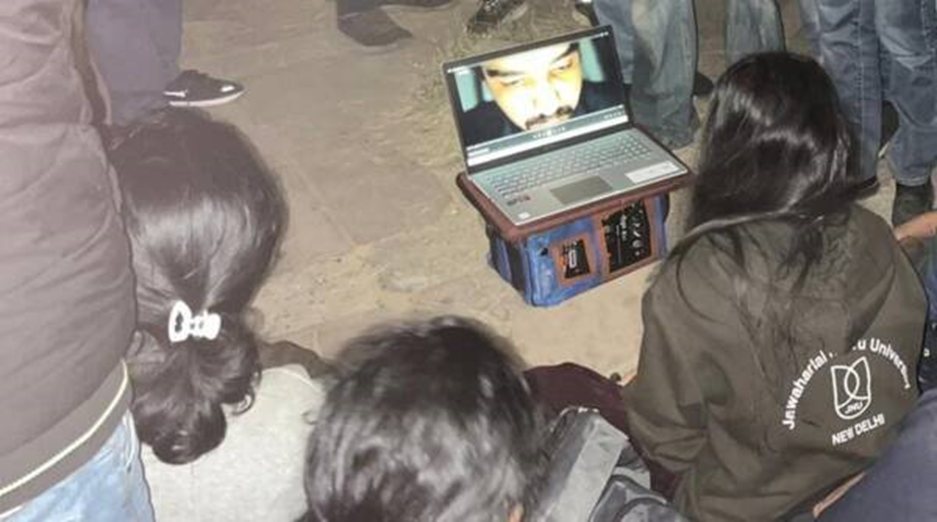
One master’s student commented that there is no electricity or internet in the hostels and had reached out to the hostel warden, but there was no reply from their side. The power outage affected the faculty housing too. JNU V-C Santishree Pandit was not available for comment, and Deputy Registrar Ravi Kant Sinha said he was not authorised to comment on this matter.
Official Response to the Incident
The JNU Vice Chancellor and Registrar informed an official from the Union Ministry that there is a massive power failure that has affected one-third of the campus and that there is no deliberate power cut.
The university administration then officially released a statement in which students were advised against screening this movie. As no prior permission to conduct such an event has been obtained from university administration, such an event may disturb the peace and harmony of the campus. The students are hence advised to cancel the event; otherwise, strict disciplinary action will be taken against them.
The students responded that the screening of the movie is a voluntary action by the students and that it does not violate any provision of the JNU Act/Statute/ Ordinances/ Rules and Regulations governing the University. And their intention is to never cause any disturbances, as coming to the screening itself is a voluntary choice.
Students Reaction
Aishe Ghosh, president of the Jawaharlal Nehru University Students’ Union, was heard in a video saying that if they turn off one screen, hundreds more will be turned on. She later stated that this is the first time they have received an administration advisory for a movie screening. This never happened while they were screening ‘The Kashmir Files’. According to her, whenever there is a power cut, the campus community is always notified of it, but that was not the case this time.
At 10:30 p.m., there was a minor incident when stones were thrown at the crowd of students gathered to watch the documentary. But nobody is sure where it came from, as it was pitch black outside. A PhD student claimed he was hit on the shoulder, and others were injured as well. Following this incident, students marched to the main gate and raised slogans past 11:30 p.m.
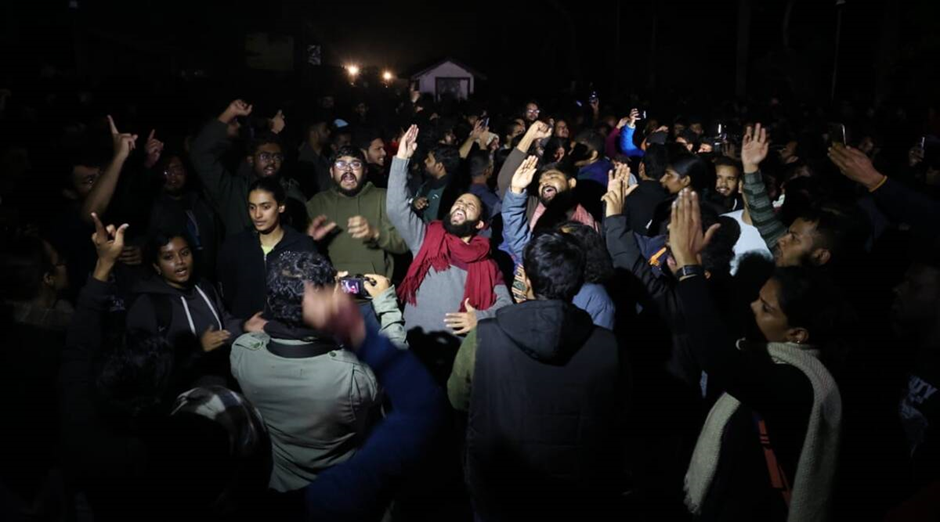
When asked about the power outage and stone-pelting, the DCP of Southwest Delhi said they had yet to receive any complaints and that action would be taken once they did. But a little past 11 p.m., two PCR vans were stationed outside the campus gate.
JNU is Not New to Controversies
There have been several incidents at Jawaharlal Nehru University (JNU) over the years. Some of the most notable incidents include:
- In 2016, a group of students were arrested and charged with sedition for allegedly shouting anti-India slogans during a campus event.
- In January 2020, JNU students protested against a proposed fee hike, which they said would make the university unaffordable for many students. The protest turned violent, and several students were injured.
- In 2020, a large group of masked men and women entered the JNU campus and attacked students and faculty members, injuring many people.
- In August 2020, students and teachers at JNU went on strike to protest the vice chancellor’s decision to hike hostel fees and introduce a dress code.
BBC Documentary
The latest row at JNU erupted over a documentary released by the BBC. According to government officials, the BBC documentary on Prime Minister Modi has the potential to have a negative impact on the country’s friendly relations with foreign countries as well as public order within the country.
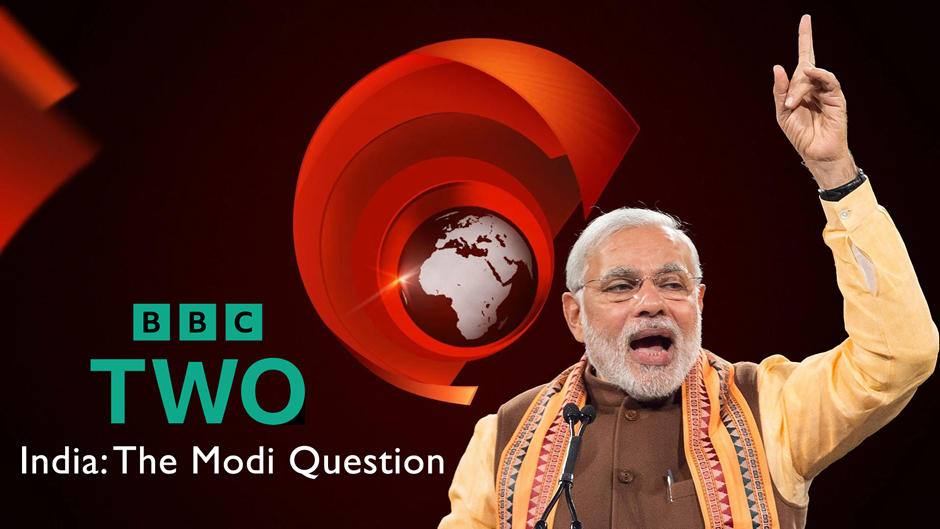
The BBC documentary is about Prime Minister Narendra Modi and his response to the Gujarat riots in 2002, when he was in power in the state.







